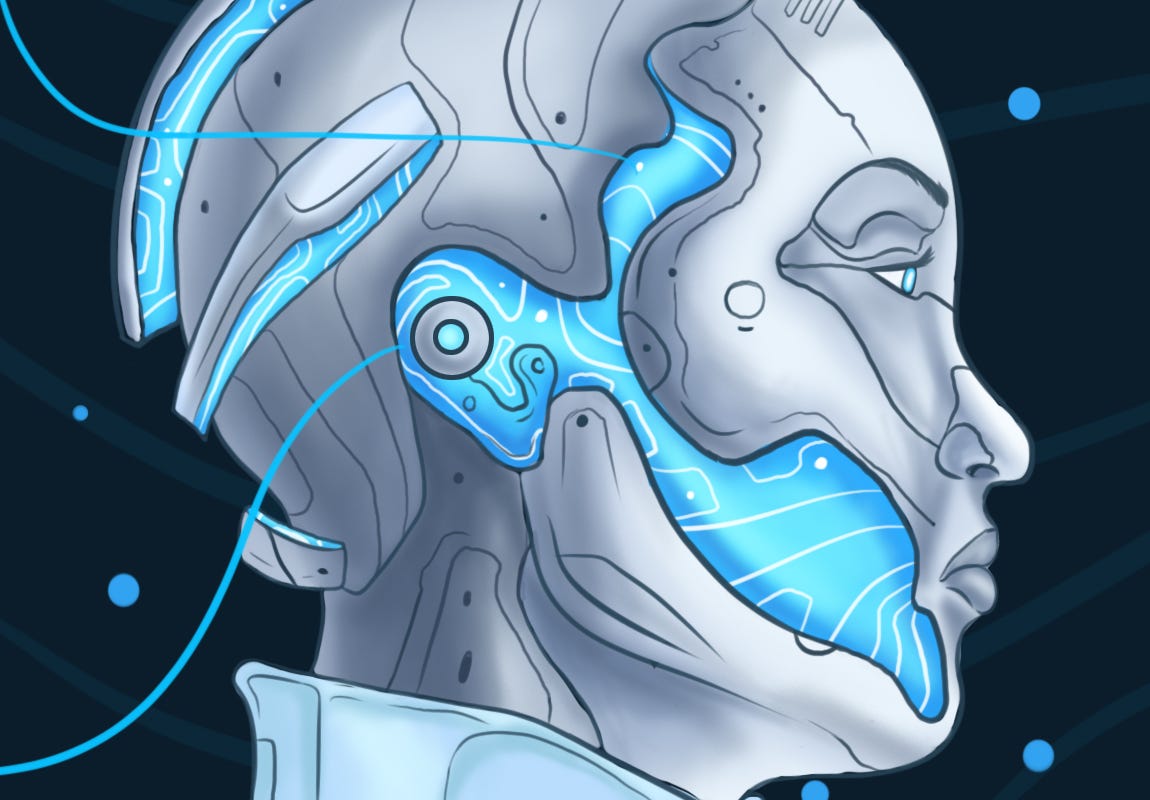Alexa and Siri are not just names now! Adults to children are calling Alexa or Siri aloud to assist them, and they have become household names that make chores and tasks easy and tech-friendly.
You might have wondered, at least once, how Alexa and Siri could understand our commands easily. That is because of Artificial Intelligence (AI). As the name indicates, we are making machines intelligent artificially so that they can assist human beings in their everyday lives. Alexa and Siri are just two examples.
Likewise, when you search for any subject in search engines like Google, it will recommend you several other related topics that you may be interested in. If you have searched for children’s apparel on a website, related items will be shown to you while you browse other websites too, thanks to algorithms which run on Artificial Intelligence. From chess-playing computers to self-driving cars, AI technology is being used.
AI requires specialised hardware and software foundations to train machine-learning algorithms.
AI is the technology that mimics human intelligence; this allows computer applications to learn from experience and make solutions according to the algorithmic training. Since AI machines are much faster than the human ability to perform similar task, they can become incredibly effective options for any process requiring intelligent decision-making.
Natural Intelligence vs Artificial Intelligence
The term Artificial Intelligence was first coined in 1956 by American computer scientist John McCarthy. He is known as the father of AI. The early AI research in 1950s explored problem-solving and symbolic methods.
The US Defence Department took interest in AI in the 1960s and began training computers to mimic basic human reasoning. Before Alexa, Siri and Cortana, the Defence Advanced Research Projects Agency had produced intelligent personal assistants in 2003.
AI requires specialised hardware and software foundations to train machine-learning algorithms. AI programming focuses on three cognitive skills: learning, reasoning, and self-correction.
As we have natural intelligence, the intelligence demonstrated by machines is referred to as Artificial Intelligence. The machines try to mimic human cognitive skills, which include learning and problem-solving skills, but still these skills are limited for machines in terms of rational thinking. Science is trying to make machines like robots more human-friendly by making humanoid robots and giving them human gestures and facial expressions. Sophia is such a humanoid robot which has a citizenship in Saudi Arabia.
Why is AI important?
AI is drastically important to our future because AI forms the foundation of computer-learning and problem solving . Through AI, computers have the ability to handle massive amounts of data. From their past experience, computers can make optimal decisions and discoveries in a fraction of a second. Thus, AI can make things easier and simple.
AI systems are much more effective in processing things than the human brain and this makes AI a powerful and extremely valuable technology.
AI has made its presence felt in almost all sectors. Smart assistants like Alexa and Siri are used in Robo-advisors, email spam filters, recommendations in applications, and websites. Autonomous cars have made a revolution in transportation. Though it is not common and perfect now, autonomous cars will one day take us from place to place. Healthcare, life sciences, education, banking, retail environments, manufacturing, and customer service sectors are now effectively using AI for advanced purposes. AI has already been applied to various realms, and thousands of applications use AI in every sector of modern economy today.
Why does AI matter in our life?
AI has an important role in our life now because it can perform tasks better than humans do in many areas. The game-changing part is that when it comes to repetitive, detailed tasks like analysing a large number of documents, AI helps do jobs quickly with relatively few errors.
For more than a decade now, Google has been the top search engine in the market. This is run by using machine-learning to understand how people use their services and then improving them. In 2017, Google’s CEO Sundar Pichai announced that the company would operate as an ‘AI first’ company.
AI systems are much more effective in processing things than the human brain and this makes AI a powerful and extremely valuable technology. In various applications, AI systems can significantly outperform humans, and that is the primary reason why AI has become significant in contemporary times too.
AI has negative aspects, too, especially regarding matters of privacy. Critics argue that without proper regulations or self-imposed limitations, the situation will get worse. The chance of personal profiles being exposed and monetised by tech giants is a matter of huge concern.
Many applications that use AI are employed to collect, process and share large amounts of data individually and collectively. This data can be used to profile individuals and predict future behaviour, even by accessing a small patch we make online.
When used responsibly, AI will be a beneficial technology for society. Effective use of AI can impact human life decisively.
Right now, machines are not very good with linguistics and language. If that is improved upon, we would have systems that could read and understand everything the human race has ever written, according to AI expert Stuart Russell.
Now put on your thinking hats and think about the following questions for a couple of minutes.
How would you describe the term “artificial intelligence” to your students?
How would you describe the contributions of John McCarthy in the development of artificial intelligence?
Write down your thoughts and discuss them with your students, children, and your colleagues. Listen to their views and compare them with your own. As you listen to others, note how your views are similar to or different from others’ views.
Thank you for listening. Subscribe to The Scando Review on thescandoreview.com.
Happy Teaching!














AI: A part of our everyday, more and more